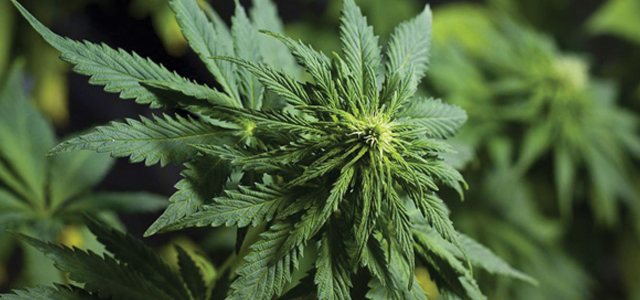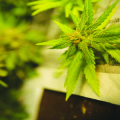In the weeks after lockdowns began as Covid-19 took hold in the United States, a bunch of crazies and charlatans began declaring that cannabis could “cure” Covid.
I wrote a cover story about them for the East Bay Express in May 2020. Some were just the usual loons who declare such things all the time—“pot can cure cancer,” many of them still like to say—and others were shady CBD peddlers hoping to get terrified people to buy their products.
This month, researchers at Oregon State University announced they had determined that certain compounds in the cannabis plant might prevent Covid infection from occurring.
So, does that mean the crazies and charlatans were right, and maybe that they aren’t crazies and charlatans after all? Not at all.
First, even if it were proven beyond the hint of a doubt that eating a pot gummy would prevent Covid, and then everybody in the world ate one, ending the pandemic, it would say nothing about the claims that were bandied about in the early days of Covid. They were entirely baseless. Made up. Similarly, if it turned out that cellphone towers really were causing cancer, that wouldn’t validate the ravings of the nuts who now declare it to be so. Making declarations isn’t science, and Robert F. Kennedy Jr. would still be an insufferable mountebank who should be ignored.
But second, the study doesn’t actually prove that cannabis can prevent infections, despite the majority of media treatments of the results that have, as they always do, mischaracterized the findings. “Edible cannabis can blunt COVID-19 infection,” proclaimed the headline on a San Jose Mercury News story first published by the Boston Herald—which also featured perhaps the dumbest lead paragraph on a pot story ever published: “New research showing cannabis compounds could blunt the virus that causes COVID-19 can really toke one’s breath away.” Most headlines were like that.
But, just for starters, it’s only one study. In terms of drawing conclusions for purposes of making policy or introducing a new drug, a single study never means anything by itself, even if it’s a huge, well-financed piece of research bearing solid conclusions and published by the journal Nature.
But this wasn’t that. The Oregon State research, published in the Journal of Natural Products, seems valid enough, but it was a lab study showing that two cannabis compounds—CBD-A and CBG-A—were able to block the Covid virus from entering isolated human cells. That’s it. No human subjects were used, and there is still no indication that ingesting cannabis will do anything to prevent a Covid-19 infection. The findings are certainly interesting, but all they really tell us is that more research is needed to determine whether cannabis can be used in a practical sense to ward off infection. And even after that, dosages and methods of administration would need to be determined. There’s a fair amount of science behind the general hypothesis that cannabis might be a good antiviral agent in some cases, but, so far, none that proves it conclusively, and still less that proves its effectiveness against Covid in particular. Really, it’s just this one study.
Back in May of 2020, ex-NFLer and cannabis entrepreneur Kyle Turley joined a loud chorus of people declaring cannabis to be a Covid cure. At the time, he was selling CBD products, which, he yelled in one of a long series of all-caps tweets, would “HELP BOOST YOUR IMMUNE SYSTEM AND WIN THE WAR AGAINST COVID.” The Federal Trade Commission told him to knock it off, as it would no doubt do if the same thing were to happen today, despite the conclusions of a single small-lab study published in a natural-products journal.
Also in May 2020, a guy named Peter Jonathan Hanna tweeted that cannabis was a “cure” for Covid. He was peddling a book about cannabis at the time, as well as a Covid-themed doomsday-prepper kit that included weed, food and a semi-automatic rifle. Today, he’s still all in on the chicanary, posting lots of pro-Trump, anti-Fauci stuff and various conspiracy theories about the virus. But though cannabis was once his main jam, he hasn’t even mentioned weed since May.

 Slavic Pearls
Slavic Pearls  A Toast to the Survivors
A Toast to the Survivors 


